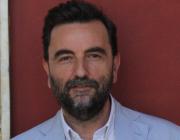Citation:
Abstract:
Refugee children have never been so numerous in Europe and especially in Greece, which is a major country of entry and hosting of refugees. These children are either accompanied or unaccompanied, and some have no relatives. According to the United Nations’ 1989 Convention of the Rights of the Child (CRC), “all CRC rights are to be granted to all persons under 18 years of age (Art. 1) without discrimination of any kind (Art. 2).” Refugee children, as all children, hold “the right to education” (Art.28), which aims to achieve “the preparation of the child for responsible life in a free society, in the spirit of understanding, peace, tolerance, equality of sexes, and friendship among all peoples, ethnic, national, and religious groups and persons of indigenous origin” (Art.29, 1d). Greek law, moreover, addresses that they all should have access to a full range of educational services, including school, university, and vocational training programs. Within this context, we argue for synergy between peace education, democratic citizenship, and social pedagogy and its potential to enable all children in schools, refugee children included, to be educated. This chapter focuses on a current initiative in 18 Northern Greek schools in which there are reception classes with the aim of the project being that 150 schools providing secondary education that offer reception classes would have taken part by the end of the school year 2020–2021. The program is titled “School for All—inclusion of refugee children in Greek schools” and is organized and run by the Wergeland Center and the Greek Ministry of Education and Religious Affairs that aim to support all school members with the ultimate goal of creating a democratic and inclusive school environment. The use of the Council of Europe’s ‘Whole school approach' and the Reference Framework of Competences for Democratic Culture (2018) are proposed to be used in practice. The first results that show reducing conflict are obvious, while it seems that a synergy between peace education, democratic citizenship, and social pedagogy can improve social cohesion within communities so as to increase resilience against conflict. Finally, the chapter reflects on the relationship between peacemaking and faith traditions, especially Greek Orthodox and Islamic traditions, as well as the value of inter-faith dialogue while aiming for inclusion.

